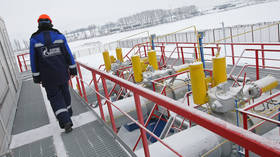EU energy crisis no longer affected by Russia-Ukraine tensions – Borrell

Lingering problems in the EU energy sector can no longer be attributed to the conflict between Russia and Ukraine, the EU High Representative for Foreign Affairs and Security Policy, Josep Borrell, said in an interview with the Spanish newspaper El Diario, published on Sunday.
According to the diplomat, the bloc has managed to overcome its energy dependence on Russia.
“We have, in a few months, abolished the energy dependence on Russia that we had been building up for years…We went through an extremely tense phase of rising prices, but they are back to pre-war levels,” he stated. According to Borrell, the sharp peak which energy prices reached in August last year was largely caused by speculative tension in the markets.
“The tensions in the energy market can no longer be attributed to the war: it is a structural problem of the energy sector, and, in particular, of the correlation between gas prices and electricity prices,” he stated.
European gas prices spiked last year to a historic high of €345 per megawatt-hour on concerns over Russian gas flows, which used to make up nearly half of Europe’s supply but started to dwindle due to Ukraine-related sanctions and technical setbacks.
This week, gas futures for February delivery at the TTF hub in the Netherlands were trading in the range of €60-70 per MWh, around the values registered prior to the start of Russia’s military operation in Ukraine. But the futures were still much more expensive than the €10-25 per MWh range within which they were trading in the 2017-2019 period.
Market analysts say relatively low energy prices in the region are temporary, due to mild weather and unusually high storage levels, with capacity filled to just under 82%. Many also warn that the situation is likely to worsen in the coming months, when Europe will have to refill storage in preparation for the next heating season with next to no Russian supplies and no viable alternative suppliers.
For more stories on economy & finance visit RT's business section













